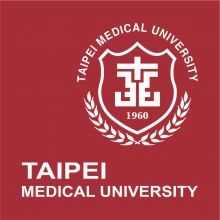Top universities fostering economic growth and employment in 2024
University Impact Rankings for UN SDG 8: Decent Work and Economic Growth
Times Higher Education has meticulously assessed and ranked 1,149 universities from 107 countries/regions for their impactful contributions to the United Nations’ Sustainable Development Goal 8: decent work and economic growth. The top institutions excel in promoting productive employment opportunities, fostering secure working environments and driving substantial economic growth. Through targeted research, policy implementation and collaboration with financial institutions, they address critical issues such as modern slavery, human trafficking and the integration of migrant workers into the workforce.
These universities not only aim to ensure youth employment but commit to creating educational and training opportunities that support sustainable economic growth. Their efforts extend to developing programmes that equip students with the skills necessary for the evolving labor market, emphasising the importance of secure and decent work for all.
Summary of findings
The ranking for SDG 8: decent work and economic growth is led by Kyungpook National University in South Korea. The same country takes spots two, three and four.
The UK has the most universities in the top 100 with 18, followed by Australia (nine) and France (eight).
Methodology
Our methodology for SDG 8: decent work and economic growth employs comprehensive indicators to evaluate universities’ efforts in promoting sustainable economic growth and decent employment:
Research on economic growth and employment (27%)
- Volume of research focusing on enhancing economic growth and productivity, improving employment rates and conditions for all, and other work-related areas
- Proportion of papers in top journals
Employment practices (19.6%)
- Initiatives to ensure fair and secure working conditions on campus
- Policies and practices aimed at preventing modern slavery and human trafficking within the university
Expenditure per employee (15.4%)
- Analysis of investment in employees relative to the regional GDP per capita, indicating the value placed on staff welfare and the extent to which the university is a significant economic driver locally.
Proportion of students taking work placements (19%)
- Measurement of the integration of work placements within the university curriculum to enhance student employability and practical experience
Proportion of employees on secure contracts (19%)
- The percentage of university staff employed on permanent or long-term contracts, reflecting the institution’s commitment to providing secure employment
The Impact Rankings are inherently dynamic: they are growing rapidly each year as many more universities seek to demonstrate their commitment to delivering the SDGs by joining our database; and they allow institutions to demonstrate rapid improvement year-on-year, by introducing clear new policies, for example, or by providing clearer and more open evidence of their progress. Therefore, we expect and welcome regular change in the ranked order of institutions (and we discourage year-on-year comparisons) as universities continue to drive this urgent agenda.
View the overall Impact Rankings 2024
Read our analysis of the Impact Rankings 2024 results
Download a free copy of the Impact Rankings 2024 digital report
Register to participate in next year’s Impact Rankings
To raise your university’s global profile with Times Higher Education, contact branding@timeshighereducation.com
To unlock the data behind THE’s Impact Rankings and access a range of analytical and benchmarking tools, click here














